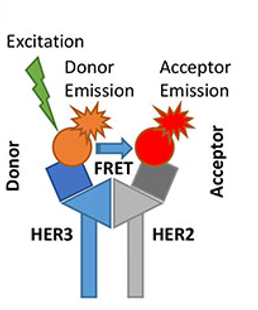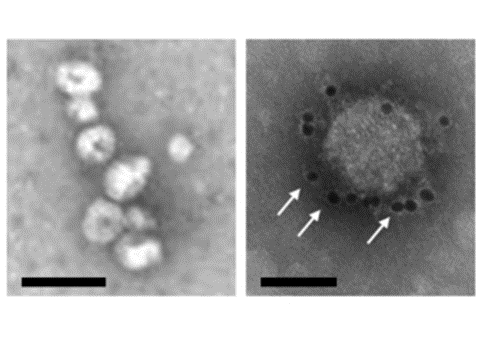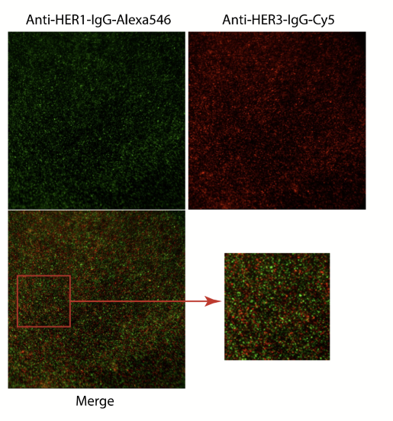EXODIMER-PET
Exosome analysis of HER2 expression and heterodimerisation in patients from the HERPET study at Imperial College London
Project Lead: Professor Tony Ng (King’s College London (KCL)
20-25% of all breast cancers are identified as being HER2-positive by the detection of HER2 overexpression using immunohistochemistry (IHC) or fluorescent in situ hybridization (FISH), which is the only validated predictive biomarker to guide treatment stratification of breast cancer patients towards HER2-directed therapies. HER2-directed therapies e.g. trastuzumab (Herceptin), pertuzumab (Perjeta) and T-DM1 (Kadcyla) have contributed to significant improvements in survival outcomes in this patient group. A key challenge with the clinical utility of these treatments is the development of resistance which is evident in the management of patients with metastatic HER2 positive breast cancer.
Tissue based “omics”, combined with the development of molecular imaging agents to detect the degree of HER2 expression in breast cancer patients could offer the potential to tackle this hurdle and decrease dependence on tumour-tissue biopsies which are required to detect HER2 expression by IHC and/or FISH and guide treatment decisions. Tissue biopsies are inherently invasive and at times technically difficult to perform. The real-time imaging of HER2 expression could allow for a non-invasive means to visualise HER2 expression in the entirety of the tumour burden, guide treatment decisions and potentially detect the development of resistance against HER2-directed therapies.
Exemplar 6 is a collaborative effort between two NCITA centres, King’s College London (KCL) and Imperial College London (ICL), led by Professor Tony Ng & Dr Gargi Patel at KCL and Professor Eric Aboagye & Dr Laura Kenny at ICL. The HERPET study ( ClinicalTrials.gov Identifier: NCT03827317), led by NCITA coinvestigator Dr Laura Kenny at Imperial College London, and funded by the MRC and GE Healthcare, is a phase 1 study which is evaluating [18F]GE-226 HER2 radiolabelled Affibody® for targeted PET imaging of HER2 expression in patients with metastatic breast cancer.
Professor Ng’s team will provide additional translational endpoints for this study by exploring the analysis of participant-derived blood samples for circulating exosomal HER2 expression and exosomal HER-HER interactions using combinatorial FLIM-FRET technology, a technique that the group has pioneered.

HER-HER interactions are integral to responses and resistance to HER2 directed therapies. This project will explore to utility of exosomal HER2 and HER-HER interaction assays as non-invasive methodologies to stratify and monitor patients on HER2-directed therapies. This multimodality approach will enhance the analysis and translational outputs from this project. The utility of ‘blood-based’ HER-HER assays in conjunction with molecular whole-body HER2 imaging could provide clinically relevant complementary data that may aid in the refinement of clinical decision making. The medium-longer term objective is to obtain further funding to conduct a larger validation for the imaging-exosome combination tool to be used as a novel biomarker.



